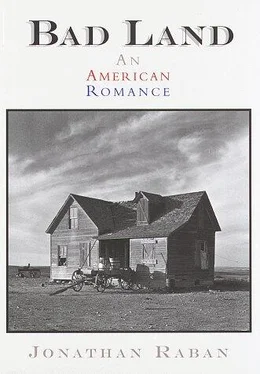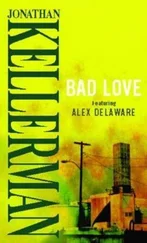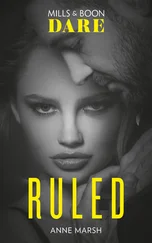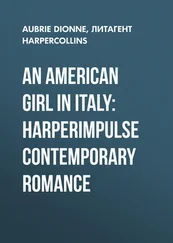After more than two hundred years of exposure to the Romantic Sublime, the eye has dulled. Caspar David Friedrich and John Martin can be found on calendars, and Bierstadt’s grand set pieces now look cheesy. You wouldn’t buy a painting from someone who set up an easel in the Rocky Mountains today: the mere choice of location would be an almost-certain guarantee of the picture’s badness.
But I had approached the Rockies from the vacant plains. Having finally adjusted my eye to the uninterrupted 360-degree sweep, having grown used to the idea that a little sixty-foot butte could command a whole landscape, I was helplessly excited by the somber mountains, where storm clouds were snagged in the branches of the firs, and the light had the refractive consistency of water. On Rogers Pass, at 5,610 feet, I ached for a paintbrush, and the skill to use it.
Beyond the pass, small creeks began to gather at the roadside. They trickled in from behind spurs of mossy rock, joined forces and, within a few miles, became the tumbling headwaters of the Blackfoot River, bound for the Columbia and the Pacific Ocean. The long downhill ride through the trees, with the river breaking white alongside, gave the Wollastons’ Model T a chance to cool, but led to a new alarm, about the braking system. On this model, there were brakes only on the rear wheels, and they were worked by a rod that led from the hand lever to the axle. Each time Ned pulled the lever back, the brake shoes ground noisily on the drums, the asbestos worn to the rivets. The car coasted from bend to bend, with nearly half a turn of play in the steering. Dora, craning her head out of the window, saw puffs of smoke coming from the wheel rims whenever Ned hauled on the brake.
Then, at 4,500 feet, the river slowed and widened, and the road leveled, as a high valley opened up around the car. Between the stands of lodgepole pine and silver birch lay alpine meadows with grazing dairy herds. The valley was riddled with trouty streams, named with gruff Montana humor: Sucker Creek, Humbug Creek, Sauerkraut Creek, Keep Cool Creek, Poorman Creek. New log cabins, varnished like boats, dotted the landscape. Here was the beginning of summer-home, recreational Montana, where the woods were loud with the pop-pop of hunting rifles, and, in season, the unfolding parabola of a fly line would glint in the sun above every creek.
The town of Lincoln, the capital of this happy valley, was a mile-long avenue of motels (“Hunters Welcome!”), R.V. courts, bars, eateries, crafts shops and sporting-goods stores. My attention must have been failing, for I did not notice an unkempt bearded man, just three weeks older than I am myself, pedaling away from the Lincoln Community Library, on Ninth and the highway, with a sackful of books on sociology and Chinese philosophy. I would like to have spotted Theodore Kaczynski, the Unabomber suspect, a full five months before his arrest by the FBI; but (as I later found) it would have been nearly impossible to have singled him out from all the other bearded loners on bicycles, with self-inflicted haircuts, who were part of the Lincoln landscape.
Unaware of the celebrity that lay in wait for Lincoln, I drove on down to Missoula, where I took a room at the Village Red Lion, and called up Deirdre McNamer, the Montana-born novelist, to ask if she was free that evening. We arranged to meet at the Post House bar.
The bar was beginning to fill up for a poetry reading when I arrived (Missoula is that sort of town). Waiting for McNamer, I wrote in my notebook a description of Ned and Dora’s drive through the Rockies, and made a note to myself to find out more about how the brakes worked on a Model T.
When she showed, I was fog-headed, lost in the Wollastons’ epic trip. I could talk of little else.
“You came over Rogers Pass?”
“Right. Imagine doing that in a Model T … actually, they probably had to make the climb in reverse, because the gas tank was under the seat …”
“I don’t think so—”
“What do you mean?”
“Rogers Pass wasn’t built until sometime in the 1950s. You got the wrong pass, bud. They would have gone through Helena and over Mullan Pass.”
Back at the Village Red Lion, I suffered a night of chagrined dreams.
Early next morning, while I was brooding over the pitfalls of imaginative reconstruction, the Jeep went into a fishtail slide on a section of US 200 that may, or may not, have been part of the road traveled by Ned and Dora in 1927. It had been snowing desultorily all night, and big, splashy flakes were still falling. The roadside was littered with casualties: a pickup with its nose buried in the ditch, a car standing on its roof. The flashing lights of ambulances and highway-patrol cars lit the slippery way down to the Jocko and the Flathead Rivers. I took it at a chastened crawl, with impatient trucks shush-shushing past the Jeep, and making wakes of flying snow.
Down in the valley, the snow was falling as rain, and it was dusk at 10 a.m. There were weeping willow trees in people’s yards, brown bullrushes in the ditches at the roadside; alder, sycamore, nettles. Cows stood up to their chests in green stuff, and the wheat stalks in the small, harvested fields were packed as close as the bristles on a broom. To anyone fresh from the droughts of Ismay, it would seem only fitting that the skinny little town at the confluence of the Flathead and the Clark Fork should be named Paradise (pop. 300).
The broadening river was full of cigar-shaped wooded islands. As the rain cleared, and sunlight caught the edges of the clouds, the water turned soapstone green — a color borrowed from the conifers on the high slopes above. Small farms were crowded into the narrow space of the valley floor. A few acres could support a family here: a dozen dairy cattle, an orchard, a plowed field sown with winter wheat, chickens scratching in mud, two ponies on a wood-fenced pasture — and all this within the compass of a handkerchief, by prairie standards.
I fancied — cautiously — that to Ned it must have looked as green as his idea of England. Anything would grow here, if you could find a patch of soil to call your own.
For this flatland was in very short supply. The valley walls closed in, squeezing the river, the highway and the railroad into a crack hardly big enough for all three to pass through at once. The Clark Fork turned into a mile of whitewater rapids; then, as the valley opened up again, it slowed and widened into a motionless green pool behind the dam at Thompson Falls.
The town began with the diarrhetic scent of steam from the Crown Pacific lumber mill, Masterpiece Taxidermy for the hunters and a company that sold ready-made log cabins to people who had the pioneer spirit but lacked the pioneer brawn and the pioneer handiness with an axe. Set a block back from the riverbank was the line of plain, brick, two-story businesses that still served as Thompson Falls’s downtown. The place could not have changed all that much since Percy stepped off the train to fight the forest fire.
He did well on the mountain, and when the fire was out, Percy was offered a job with the Forest Service, as a smoke chaser. No nineteen-year-old would have found it easy to turn the offer down. Each smoke chaser was issued with a ten-by twelve-foot tent, with wooden boards for walls, a supply of food, a packhorse mule and the license to roam his own assigned neck of the woods. Percy’s territory lay west of the Clark Fork — a rambling freehold of trout streams, mountain peaks and pine forest. To report in to HQ at Thompson Falls, he had a field telephone, which he clipped on to the Montana Power Company line, which conveniently bisected his patch of wilderness.
In the woods, he found company. During Prohibition, Thompson Falls was a fugitive center of the distilling industry. The mountain water was good, there was grain to be had in the valley, and there were moonshiners’ cabins on most of the more inaccessible creeks. Percy’s first task was to reassure his neighbors that he wasn’t a threat to their business. He visited frequently with the moonshiners, and became a considerable judge of whiskey.
Читать дальше












